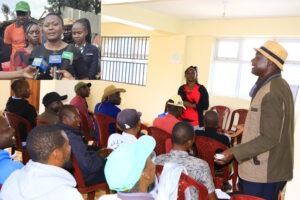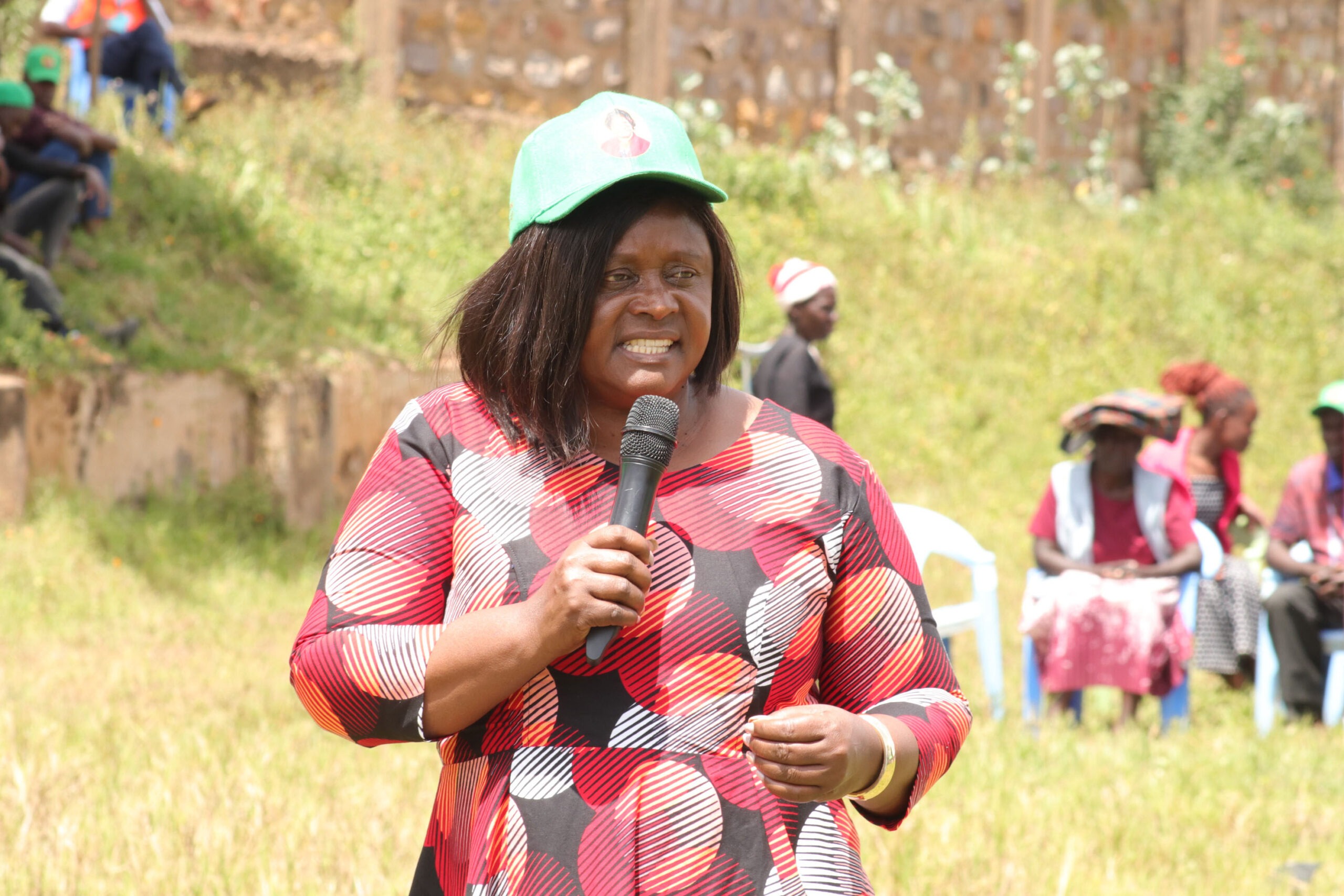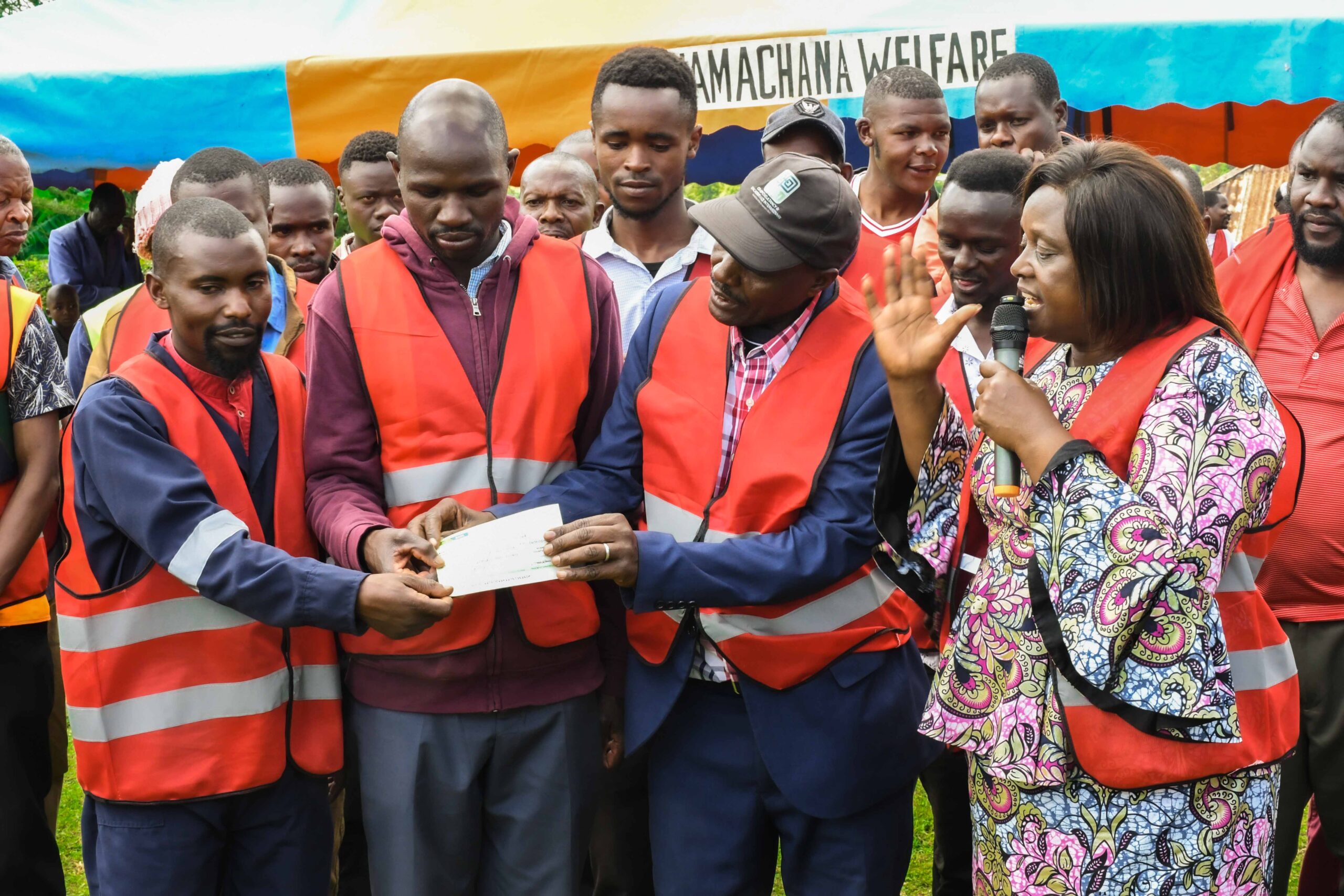
By Arnold Ageta
Nyamira North Women Sacco has intensified its anti-gender-based violence (Anti-GBV) campaigns in North Mugirango, turning to men to help end the vice in society.
The Sacco, which not only focuses on financial empowerment, also has a dedicated GBV department that addresses the fight against GBV, a problem that has been rampant in the recent past.
In Kenya, a significant number of women experience gender-based violence (GBV). A 2022 report from the Kenya National Bureau of Statistics (KNBS) indicates that over 40% of women aged 15-49 have experienced physical violence, while 14% have experienced sexual violence.
According to Africa Data Hub, at least 500 women were murdered by their intimate partners between January 2016 and December 2023.
Meanwhile, a substantial percentage of men report experiencing violence from their female partners, with some studies indicating that a significant number of men are victims of intimate partner violence.
Men can be victims of physical violence, including assault, beatings, and other forms of physical harm. Sexual assault and exploitation can also affect men, though it is often underreported.
In a move to balance the equation in society, Nyamira North Women Sacco has changed its tactics in handling GBV by embarking on sensitization workshops for men.
Hyline Mogambi, who is in charge of GBV at the Sacco, says that most campaigns have been targeting women, overlooking men, who are the majority of perpetrators.
“We have gathered here with husbands of our women beneficiaries from Nyamira North Sub-county to sensitize them on how we can partner with them to end GBV,” Hyline stated.
Previously, according to Hyline, men thought that GBV campaigns were meant for women, but now, after the sensitization, they have understood the need to learn about GBV and contribute to its end.
She urged organizations fighting GBV to involve men in their programs if they want to succeed in this fight.
“There are still conflicts in many families because men have been left out, and this war cannot be won by leaning on one side of gender,” she warned.
She also noted that men need to be listened to because they are also affected by GBV but fear reporting the cases.
She raised an alarm that men are suffering in silence while women are receiving the attention and protection they need.
“Because they are not able to speak out or get someone to listen to them, many end up committing suicide, leading to the high rate of suicides among men (and boys) in the country,” she cautioned.
A staggering 77 percent of suicides occur in low- and middle-income countries, with the African region bearing the highest burden at a rate of 11.2 deaths per 100,000 people.
In Kenya, the crude suicide rate is 6.1 deaths per 100,000 people. Men are three times more likely to die by suicide than women.
The study “Every Suicide Is A Preventable Tragedy, A Need For An Integrated Care Model In Kenya” revealed that every day, four people die by suicide in Kenya, and globally, one person dies every 40 seconds. It also stated that 75 percent of Kenyans do not have access to mental health services.
The study, conducted by Dr. Nasri Omar, Francis Nyamari, Dr. Leila Abdullahi, and others in 2023, further indicates that men are poor at communicating their feelings, hence may not get help in time.
Data trends in Kenya show that suicide rates among men have consistently been three to four times that of women in the last two decades.
For instance, in 2019, 9.1 percent of men per 100,000 died from suicide compared to 3.2 percent of women, according to World Bank statistics.
Hyline says men need to be involved in the fight against GBV because they are the key decision-makers in families.
“If we involve them and tell them that partner violence is bad and against the law, the fight against GBV will succeed,” she observed.
Her counterpart, Grace Kerubo of Manga Heart, also agrees that the involvement of men in this fight will help trigger conversations in society, leading to widespread participation and making GBV a thing of the past.
“We have trained them on how they (husband and wife) can participate in decision-making and better their communication in the family to avoid conflicts that lead to GBV,” said Grace.
She added that they sensitized them on human rights for both women and men so that they know what is expected of them to live peacefully as couples.
“We have realized that men have power in the family, and we have taught them how they can use these powers to build their family without causing conflict,” she said.
She also observed that husbands and wives should learn to accommodate each other and solve issues nonviolently.
Joseph Keroro, a beneficiary of the training, confirms that men’s engagement in the fight against GBV plays a key role in eradicating violence in families.
He says he has now understood his roles as a husband and discovered the loopholes that may lead to GBV.
“I have understood how to use my influence in the family to combat any form of violence because violence is an outdated practice that used to be experienced in the days of our grandfathers,” he declared. “We thought we knew, but we did not.”
He appreciated the training, saying the teachings will change the narrative in society regarding GBV.
By listening, challenging harmful norms, and leading by example, men can help build a world where safety and dignity are not privileges but fundamental rights.



